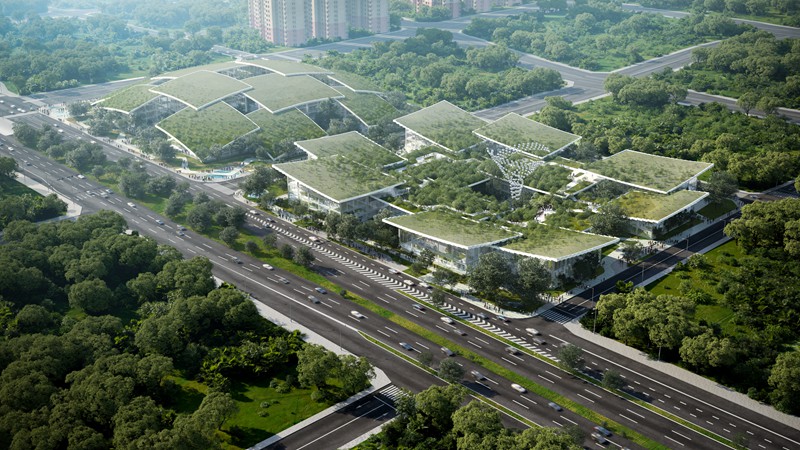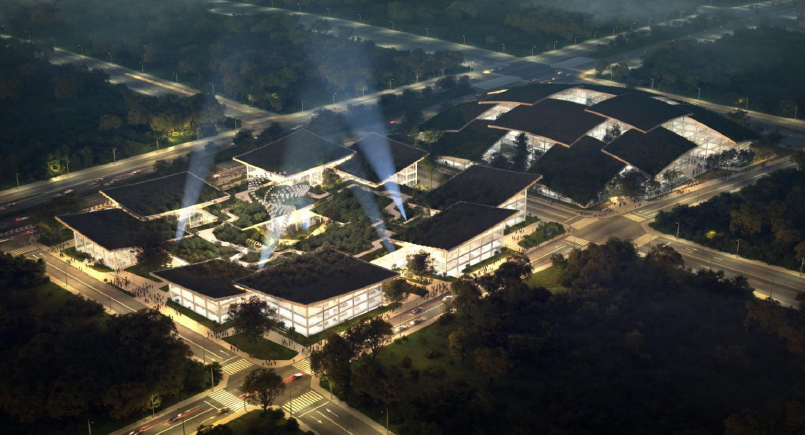
Terminus Group brings their Cloud Valley project prototype to the Web Summit. /CFP
Terminus Group brings their Cloud Valley project prototype to the Web Summit. /CFP
Just a couple years ago, some of us were dreaming of a future city where people can be served by robots. But a Beijing-based startup has brought its first artificial intelligence (AI) city prototype to this year's Web Summit — known as the Davos of tech — on Thursday.
In a fireside chat, Victor Ai, founder and CEO of Terminus Group, talked about their Cloud Valley, a campus-style area where people, technology and nature can coexist.
Spaces are designed for four types of life: human life, plant life, animal life, and an artificial life. Objects would be embedded with chips and sensors, the CEO explained. By integrating the hardware into the company's operating system, the whole city can be run like people's smartphones.
"The platform is just like a smart car or a smartphone – a lot of different technologies come together, and as a result, they reach a critical level where they can make the AI City alive," Victor said.

Terminus Group brings their Cloud Valley project prototype to Web Summit 2020. /CFP
Terminus Group brings their Cloud Valley project prototype to Web Summit 2020. /CFP
As the city's neural network, their platform would be served as a control center collecting and analyzing diverse pieces of information and instructions coming from the chip-based devices spread around the city. People, with the help of the platform, can obtain instant information and make more responsive and optimal decisions.
The Cloud Valley project is being built in Chongqing City, a southwest mountainous region in China. According to the local high-tech administrative committee, the project is the world's first pilot AI City under construction.
Deemed as the biggest event of "digital transformation" in the Western Hemisphere, the Web Summit has had Elisa Ferreira, European commissioner for Cohesion and Reforms for an opening speech, where she stressed that digitization and connectivity can "redefine geography in Europe."
"They give us the opportunity to make geography less relevant in determining the success of the regions and people," Ferreira said.
"COVID-19 made this reality even more evident than ever, despite being on the European agenda before the crisis," said the commissioner when projecting that the role of digitalization is one of the "priorities of the future Portuguese presidency of the European Union."
Portuguese Prime Minister Antonio Costa also stated in his opening speech that the Web Summit should be "the starting point for building a better future in the post-pandemic [world]."
Multiple Chinese tech giants and startups shared their products and insights about the future digital transformation at the event. Huawei's Senior Vice President Catherine Chen Lifang shared their next steps in helping European countries build the digital infrastructure, despite tightening restrictions from the U.S. and increasingly fierce competition from other European companies.
As many countries are still being hit hard by the COVID-19 pandemic, tech leaders believe it's more urgent than ever for the world to work together to build up and deploy digital solutions to deepen our cooperation in the fields of new economy, technology and others.
Read more on the Web Summit: EU's new digital strategy demands 'responsibility' from social media

